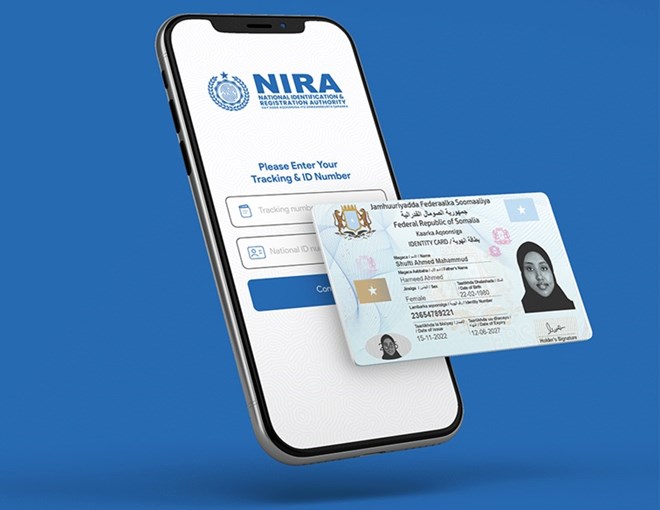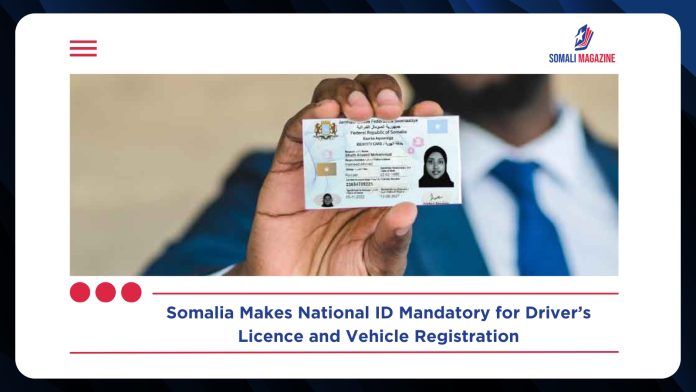Facebook Twitter (X) Instagram Somali Magazine - People's Magazine
The Somali government has officially made the national ID card a mandatory requirement for obtaining a driver’s licence and registering vehicles, marking a major step in its push to modernize public services and tighten identity verification across the country. The directive, issued by the Ministry of Transport and Civil Aviation, is part of a broader national transformation agenda aimed at improving governance, reducing fraud, and enhancing service delivery.
Effective immediately, no individual will be granted transport-related services—including driver’s licences, vehicle registration, shareholder verification for transport companies, or permits—without presenting a valid ID issued by the National Identification and Registration Authority (NIRA). The move is grounded in Prime Ministerial Directive XRW/415/04/2025 and was endorsed by the Cabinet in April as part of the National Transformation Plan.
The Ministry cited existing legal frameworks, including the 2007 provisional road transport code and Law No. 15 of 1971, which require official identification for regulated services. NIRA, launched in 2023, is tasked with issuing biometric digital IDs and building inter-ministerial databases to reduce fraud and improve service delivery.
The national ID card, which includes biometric data and digital verification features, is also becoming essential for accessing other public services such as healthcare, education, and social welfare programs. Officials say the system will help eliminate duplicate identities, streamline government operations, and ensure that services reach the right beneficiaries.
“This is not just about transport—it’s about building a secure and accountable nation,” said Minister of Transport and Civil Aviation Fardowsa Osman Egal. “The national ID will be the backbone of our public service infrastructure.”

However, the rollout has not been without controversy. Puntland’s regional administration has rejected the federal ID program, calling it politically motivated and a threat to regional autonomy. In March, tensions escalated when Puntland security forces arrested a journalist reporting on federal ID registration efforts, prompting condemnation from press freedom groups and federal officials.
In response, the federal government reaffirmed that NIRA is the only legally recognized authority to issue identity cards in Somalia. It warned that any alternative systems would not be accepted for national services, including those related to transport, banking, and civil registration.
Despite the pushback, the federal government insists the ID program is inclusive and accessible. NIRA has established registration centers in major cities and is working to expand coverage to rural and conflict-affected areas. The registration process includes biometric data capture, document verification, and community-based testimonial systems for those lacking formal documentation.
The ID card is valid for five years and is available to all Somali citizens aged 15 and above. Officials say the system complies with Somalia’s Data Protection Act and includes safeguards to protect personal information.
As Somalia continues to rebuild its institutions after decades of conflict, the national ID program is seen as a cornerstone of its digital governance strategy. By linking identity to service access, the government hopes to foster transparency, accountability, and national cohesion.

